
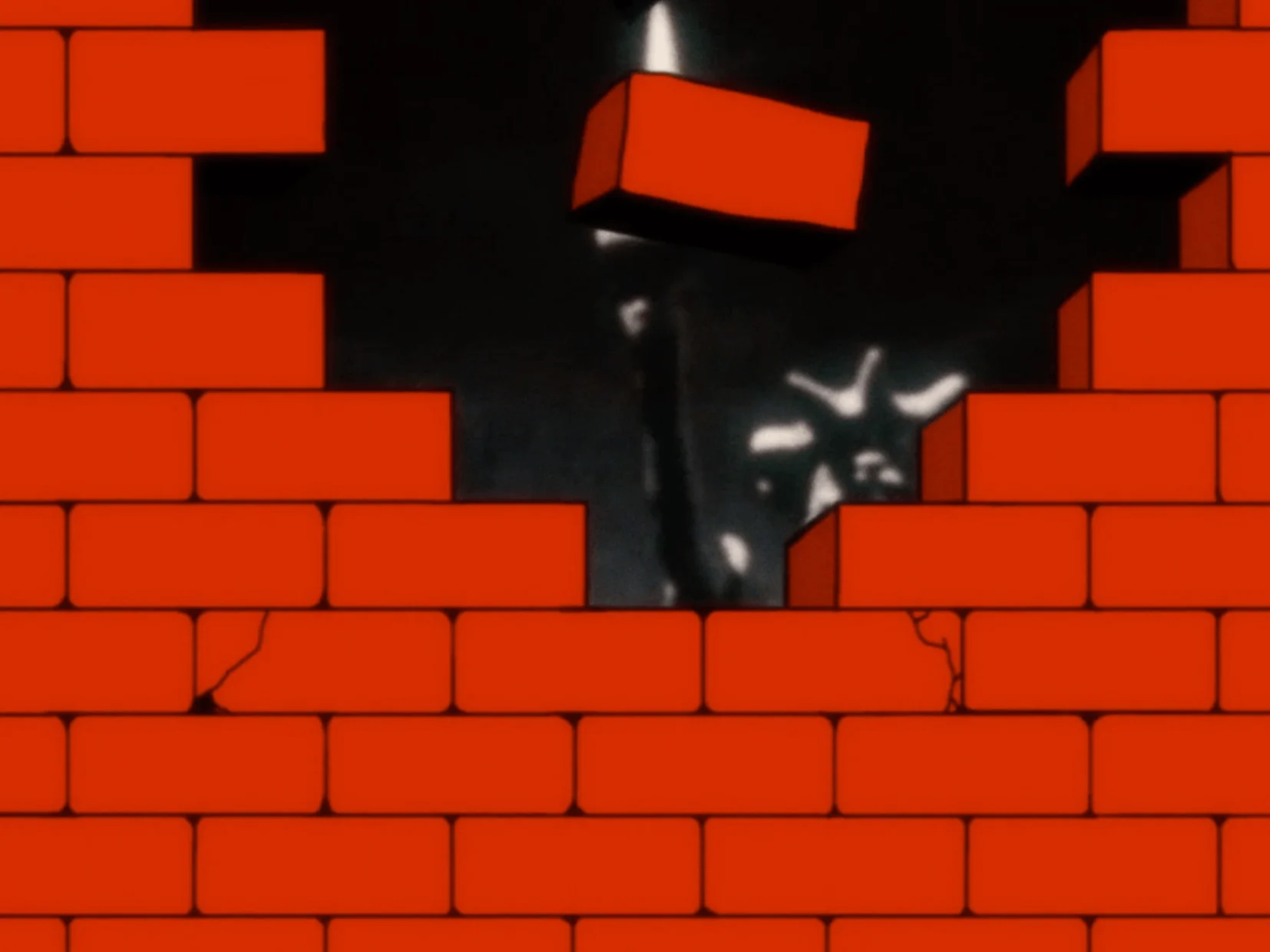
New York music collective Standing on the Corner aren’t easy to describe. And that’s exactly how they like it. Led by vocalist/songwriter Gio Escobar and producer Jasper Marsalis, SOTC remix, reimagine and repurpose different genres, samples and distortion to create something utterly unique.
Not surprisingly, their latest video plays with visual references in exactly the same way. The Twin Towers, cops disguised as pigs and a red brick wall all feature in the video for Sah Babii /\ Now, Nation End, presented by WeTransfer.
The track comes from the mixtape Red Burns, which The Fader* described as “a meticulously compiled sonic-scrapbook documenting a tumultuous moment in time.” This video lives up to that billing too.
WeTransfer head of music Jamal Dauda spoke to them about the ideas behind the video, playing with references and diversity within the music scene.
Jamal: Tell me a bit about this video, how it came about, and what it means for you?
SOTC: A big part of it was trying to work with Taylor Johnson and the Mortis Studio dudes. They have a similar lexicon when it comes to reference or the language that we deal in visually. I think they share a lot with us. That was a big thing.
Jamal: How did you first hear about the Mortis guys? How did they come on your radar?
SOTC: They did a video for Earl Sweatshirt that I really enjoyed.
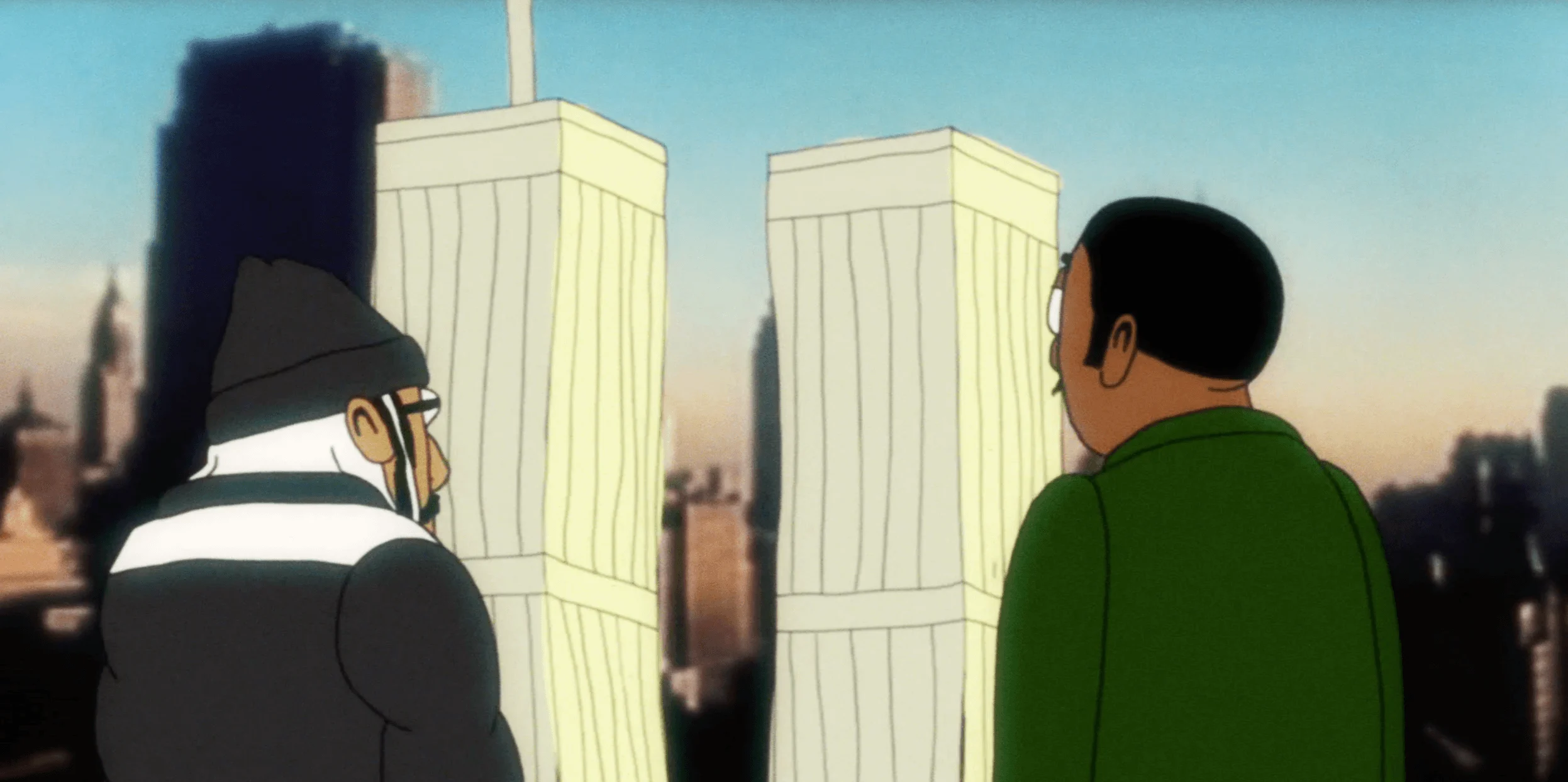
Jamal: Why choose this song? Why make this snippet of the larger Red Burns composition a visual piece?
SOTC: I think we picked that song specifically because it felt very narrative, maybe not in a way that completely tells a story, but it felt like something that could be seen. Like the train of thought.
It's a two part thing; bringing to life all these tiny things that are being said that hold the message in the first half and then moving into the second part, which is supposed to feel like falling into a black hole.
It is a play on a lot of astrophysics and astronomy, which is something that I'm very interested in and it’s fully a part of the music. It's a visual representation of what it's like to fall into a black hole - or at least how I imagine it would feel, because no one knows what falling into a black hole is like.
So all of these smaller parts are playing off of each other. Specifically how the images move together, the speed of it, some of the warped-ness of it, you know what I'm saying?
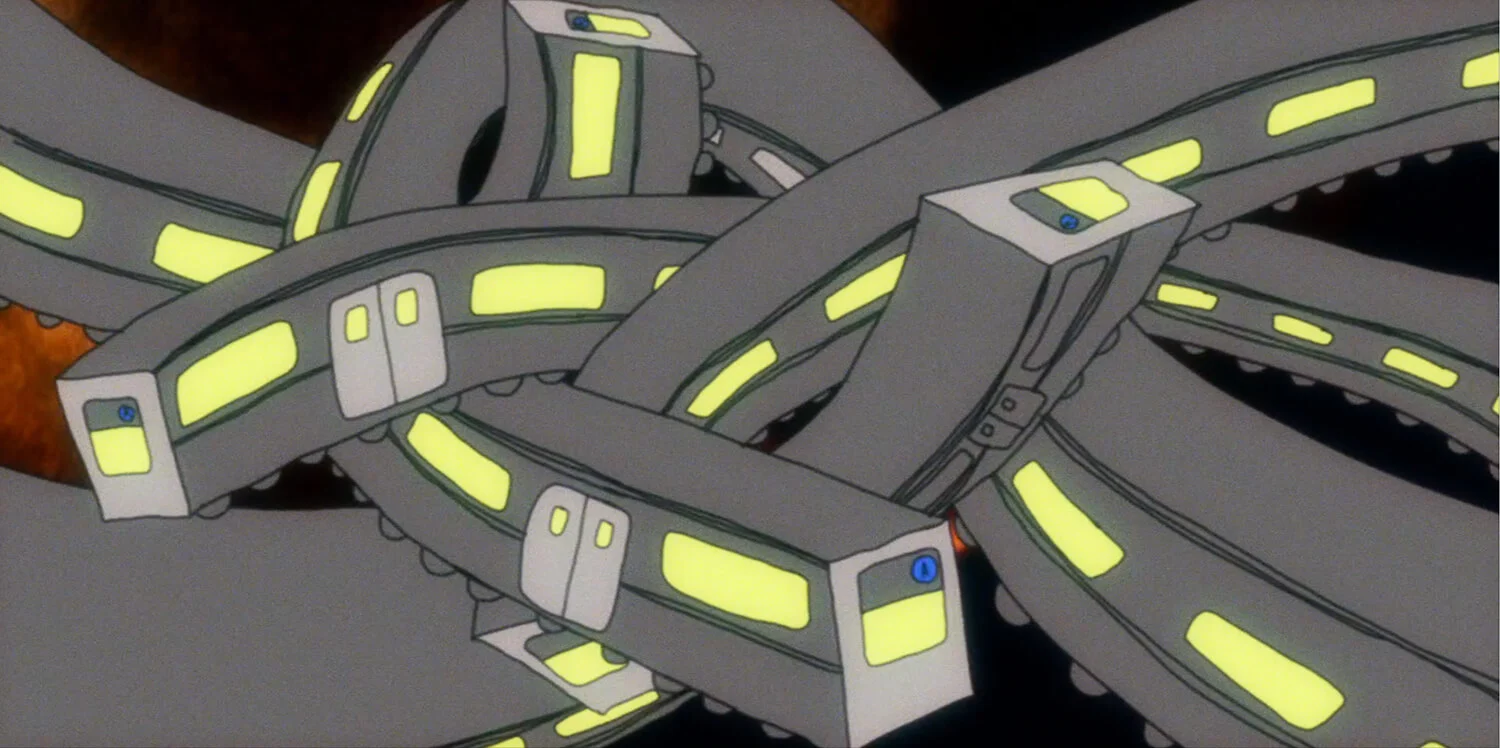
Jamal: Makes absolute sense. You started talking about how this isn’t a traditional narrative, but it still has more linear movement than some of the other things that you guys do, which are a little more abstract overall. Do you feel there's a very specific meaning to the song and video? And if so, what is that?
SOTC: There's definitely a meaning. I think there's something that ties it all together, but I don't know. I guess I feel like maybe putting it into words just gives it away a little bit or something. Like it feels a bit reductive.
It’s hard to stay bound and stay true to some sort of initial idea or goal you set out when things are just constantly happening around us.
Jamal: In a past interview you were talking about how you all came together and it was mostly based on being the only people of color in predominantly white music and art scenes. It was as simple as maybe if we just get our numbers up, it might be a little more comfortable at times.
SOTC: That's the point of view of the video. It's like we're a pack of people who look like this.
Jamal: It ties to such larger, complex issues of representation in art. Diversity in the arts is something that seems so obvious, but it's so off-balance in a lot of spaces. I think people don't realize how important that representation can be for young creatives.
SOTC: Yeah, people have tried to confront us fairly often on some of the ideology and the imagery around the music. Sometimes people don't understand. Sometimes people are just turned to rage. They're just upset by it. It's very intentional. It's overt. I don't know. None of us have anything to hide.
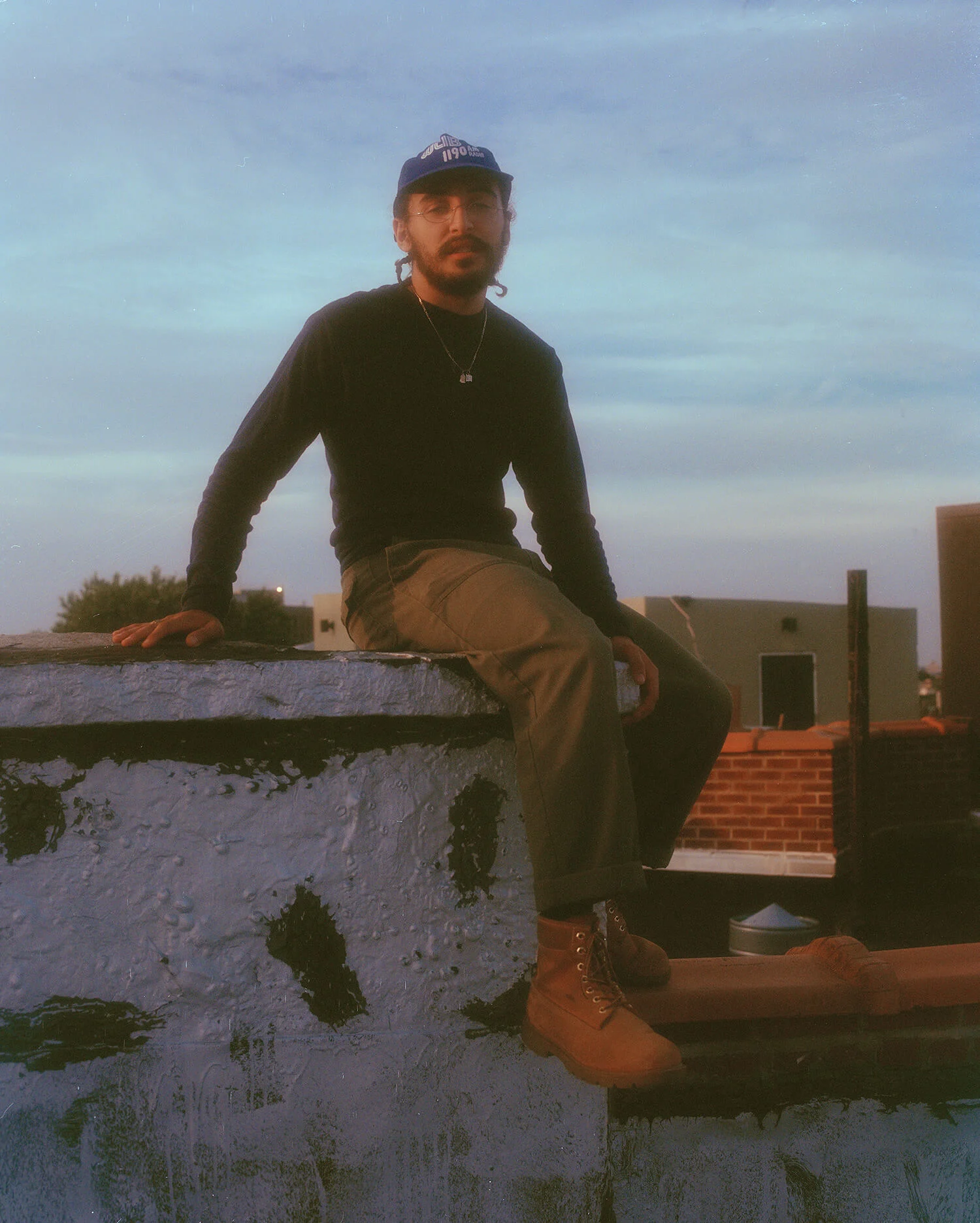
Jamal: A project like Red Burns that can feel like it comes from a place of anger doesn’t strike me as coming from an angry point of view. What's the lens for that project?
SOTC: I think it's just about expression. I think any byproduct of expression is really just that, a byproduct. There was no intention of how that thing was going to turn out. It was constantly evolving with everything that was happening. We don't talk too much about the politics around it, because it's such an unnecessary conversation at this point. At the same time, we were there, we were alive, and this is how we took it.
We could have decided we were finished at any point in the year that it took us to make it, but we just kept having things to say and kept having feelings to feel. It was originally supposed to be something short and small, but things were happening in real time. That was a lot of how we rolled it out.
Specifically in art or any sort of expression, it's hard to stay bound and stay true to some sort of initial idea or goal you set out when things are just constantly happening around us. You know what I mean?
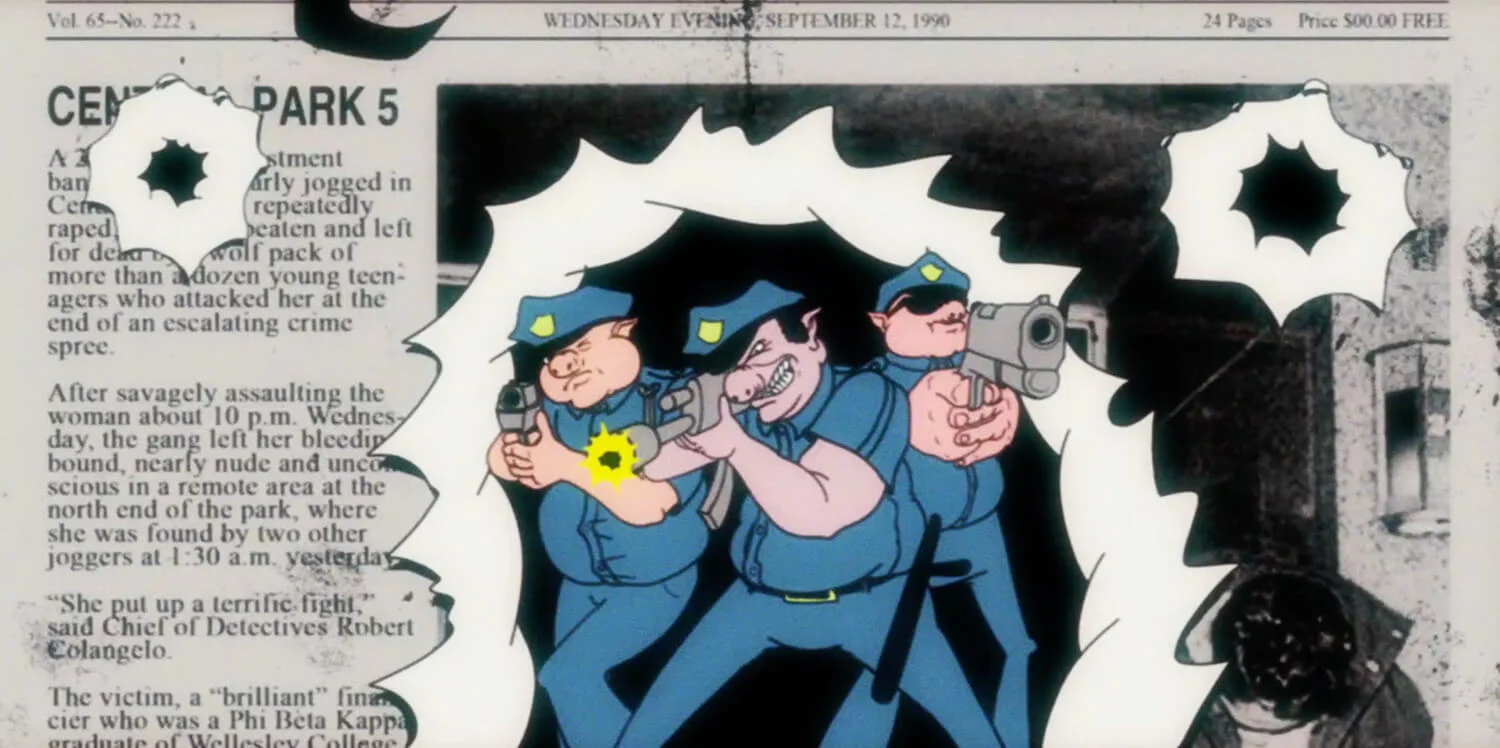
Jamal: 100%. It's one of the things that I'm forever fascinated by in art is, when is something finished? I’m really intrigued by this idea that something is never really done. From an art and music concept, I think that's really interesting the further you get from a more traditional commercial system. You can play with that a little bit.
You can say, yeah, we're going in to do a ten minute jam, and walk away with a 63 minute piece. I think that's a really unique way of potentially working. With more public exposure, do you feel any pressure to do things in a more compact way? Is it all about just letting it flow naturally or are you feeling the pressure of creating an album now?
SOTC: I don't particularly feel any pressure. I do think it's important to find some sort of institutional backing. Just on a level of sustenance. Music is one thing, and art is one thing, but I have a family and a life to protect in many ways. If this is our meal ticket, it's not that I put art second to that, it's just that I have priorities and real ones. The pressure is not necessarily there, but I think it does sort of loom in some ways.
Music is one thing, and art is one thing, but I have a family and a life to protect in many ways.
The next album, let's say it is more composition-based and rock-out songs, or maybe not, but in my head I think there might be this thing that happens where people will be like, you did this more traditional thing because now you had to or you're stuck in this box.
Anything that happens is still whatever we want to happen. The only reason why this thing is still fulfilling to any of us is because it just happened. It's the honesty of it.
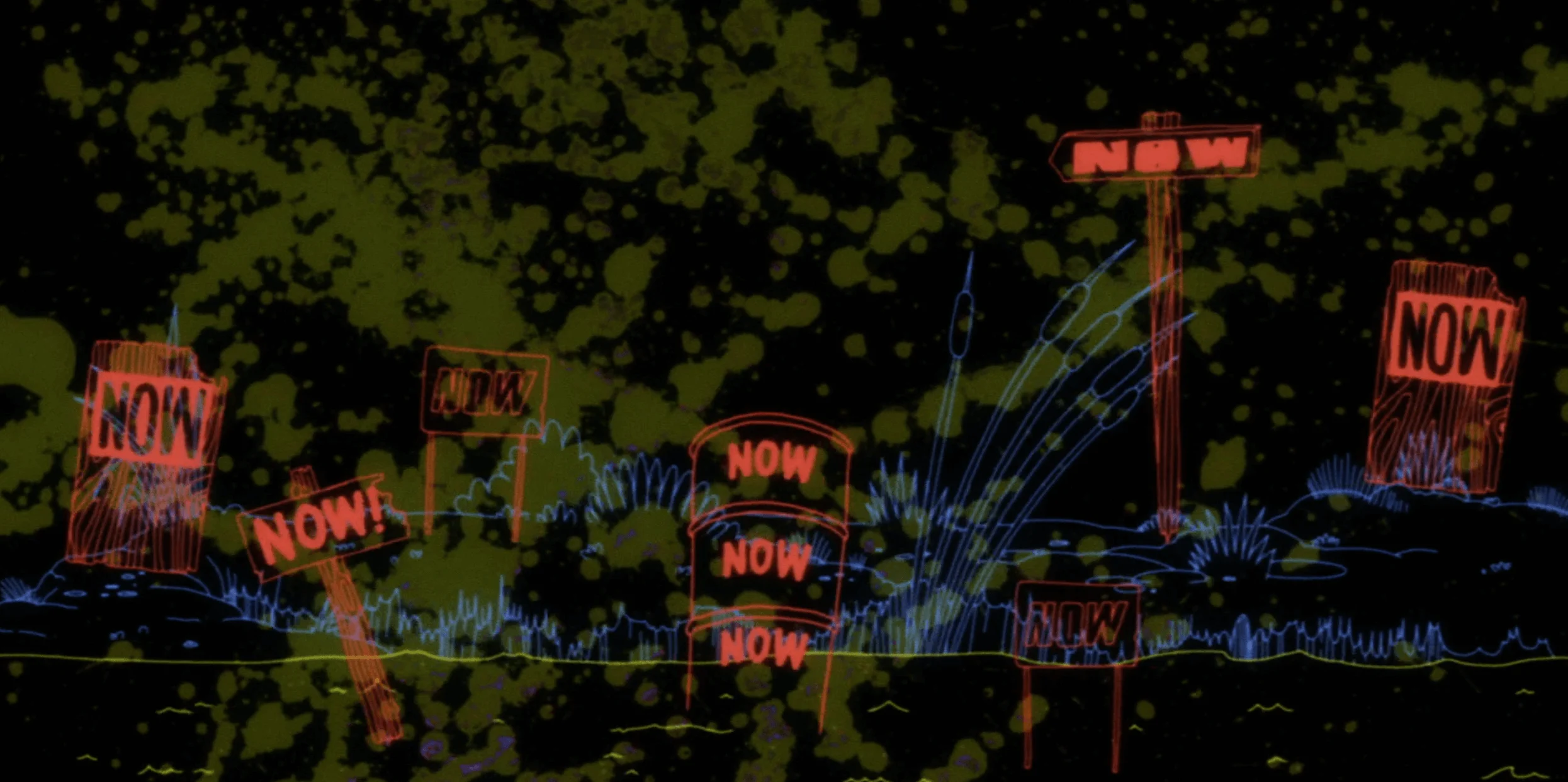
Jamal: I don't think being able to feed yourself and make art should have to be mutually exclusive. You provide something for the world that has value in it, but it's judged differently. If you were out here making candles, no one would flip out on you for being in the park and selling candles for five dollars, but the second it becomes a song, it's like, you can't be at all focused on making money off of it. It's a weird thing that we do to artists as a culture.
SOTC: Something like that has been around forever. It's still on my mind. I don't necessarily fear it. The only way for me is to not compromise so much to the point where you're doing shit.

